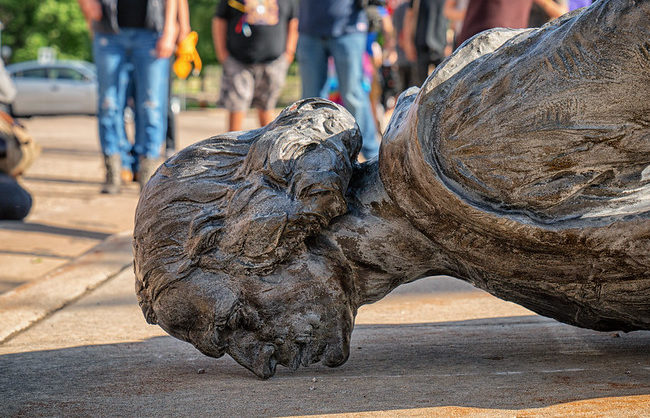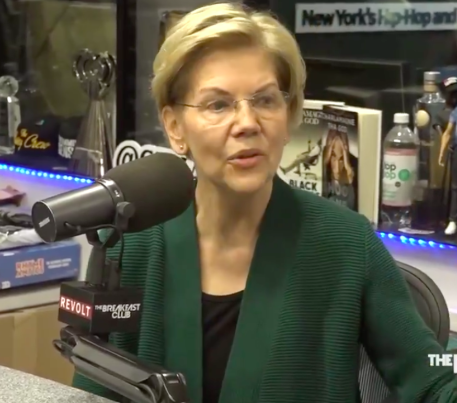Columbus Day Must Die: NH Dems Torpedo Indigenous Peoples Day

A compromise proposal to create an Indigenous People’s Day in New Hampshire was killed by state House Democrats earlier this month, who argued honoring Native Americans was not enough.
Columbus Day, they insisted, must die.
Democrats on the House Executive Departments and Administration Committee unanimously voted HB 1173 as inexpedient to legislate, rejecting the idea of leaving both Columbus Day and Indigenous People’s Day on the calendar.
“I don’t entirely understand their opposition,” said Rep. Oliver Ford (R-Chester).
Ford is one of the bill’s co-sponsors, which would have established an Indigenous Peoples’ Day on Aug. 9 to coincide with World Indigenous Peoples’ Day. Ford’s bill had nothing to do with the October Columbus Day holiday. That was not good enough for progressives who want to eliminate the celebrations for Christopher Columbus, he said.
“I specifically think they are separate issues,” Ford said. “If he wasn’t a nice guy, then don’t celebrate a day for him. But don’t substitute it for another day.”
The other co-sponsor, Rep. Jess Edwards (R-Auburn), said people on the left have been trying to do away with Columbus Day in the State House for years, and some members are burning out on the fight.
“It’s an unpleasant issue,” Edwards said. “There are people who are advancing the bills who have so much anger and hostility against the United States. They use the Indigenous Peoples’ Day as a weapon.”
Edwards said his bill was a response to a progressive effort last year to eliminate Columbus Day celebrations in New Hampshire in favor of Indigenous Peoples’ Day. Edwards sees Columbus Day as a celebration of this country’s discovery and attempts to end that celebration as un-American.
“I’m a patriot. I love this country. Mankind is flawed, but the United States has done the greatest things on behalf of freedom in the world,” he said,
Rep. Timothy Horrigan (D-Durham) opposed Edwards and Ford’s bill, saying holding the celebration in August is meaningless.
“Aug. 9 is just another day,” Horrigan said.
Horrigan wants to see New Hampshire stop celebrating Columbus Day in October and replace it with Indigenous Peoples’ Day. Horrigan bases his opinion on the historical record of the atrocities Columbus and his men committed in the New World.
“A lot of good things came out of his voyage, but a lot of bad things came too,” Horrigan said. “According to the historical record, he was a pretty nasty guy.”
However, the historical record also shows the residents of the New World weren’t perfect, either. Slavery, ritual human sacrifice, and cannibalism were all practiced by the indigenous people of the Americas long before Europeans arrived.
When Columbus landed in the New World, he and his men started taking the native people as slaves, using them as forced labor, or selling them off to slaveholders in Spain.
Concord, Manchester, Nashua, and other municipalities have adopted Indigenous Peoples’ Day celebrations to coincide with or replace the Columbus Day holidays. Last year, President Joe Biden became the first president to acknowledge Indigenous Peoples’ Day.
Andrew Bullock, executive director at the Mt. Kearsarge Indian Museum in Warner, does not take a position on when it should happen but says he believes there should be a day to honor indigenous people in America. He would like to see the Columbus Day celebrations come to an end as well.
“I don’t know that (Columbus Day celebrations) reflect the current native perspective in New Hampshire,” Bullock said.
Controversy over Columbus Day is nothing new. Columbus was adopted as a patron for Catholic Italian immigrants in the 1880s. The Italians connected to Columbus as they sought to be accepted as Americans. In the 1920s, Columbus Day celebrations were at times violently opposed by the Ku Klux Klan because of the Klan’s hatred of Catholics.
Sen. Lou D’Allesandro (D-Manchester) says he thinks it is great to have a day for indigenous people, but it can’t be Columbus Day.
“I would be totally opposed to that,” D’Allesandro said. “Columbus Day has great meaning for Italian Americans who have done so much for this country.”
D’Allesandro said the holiday is similar to St. Patrick’s Day for Irish Americans, a great way to celebrate both heritage and the American ideal.
“Italians have done very many good things in this country and stood up for this country,” D’Allesandro said.




